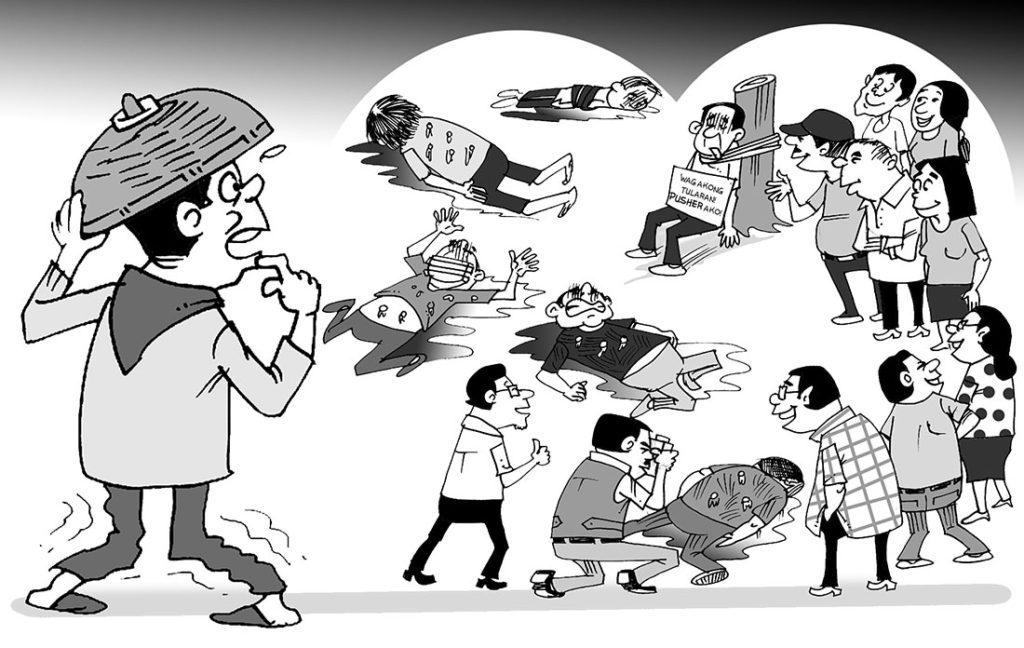
(CBCP News) CHANGE is coming. It has indeed. Weeks before the assumption into office of the new president, the most indicative of change were the summary killings of suspected drug traffickers which were always justified with the trite “resisting arrest” or “has engaged in a gunfight”. One wonders, though, why the exiting Aquino administration did not lift a finger to make any investigation or prevent the onslaught of hired killers since the yellow were still in charge until the takeover of the new government.
Except for the human rights commission and the leadership of Catholic bishops,nobody seemed to have questioned the killing spree—until now. In fact, the popular sentiment—emoticon now or “moodthingy”—was that of satisfaction. One has just to check and read comments in social media to get people’s reaction first hand. Has the Filipino culture now changed, too, and degenerated to become one that smacks of the primitive and the barbaric? Or have we just become too tired of the rhetoric of past administrations that always end up blatantly inutile in addressing the drug menace and the rising criminality?
Talking about the barbaric, which at first blush seems to be a thing of the past and therefore may only be a hyperbole, it might interest us to know that in the cyberworld one of the most sought-after videos are the beheadings of Isis hostages that were posted in Al-Qaeda and similar websites. The beheading of James Foley, for instance, in August of 2014 was watched by 1.2 million people in Britain; the number swells in global statistics.In May of that year, the beheading of Nick Berge registered second only to American Idolin search engines throughout the world. God forbid this is not the stuff that makes us numb as we watch on TV and in daily news more and more people who fall on their splattered blood.
The drug problem has grown so big and so monstrous that only a monster response can solve it, so goes one school of thought. In the Philippines the illegal drug trade has reportedly influenced political governance in much the same fashion as, say, Columbia and other Latin American countries where narco politics is most prevalent. The drug cartel in this country that is even supervised by those inside a national penitentiary and protected by those in highest echelons in government and in the national police is perhaps the biggest scourge the Philippines ever had; it has ruined millions of lives during the last two decades. One can only think of narco politics as the only plausible reason why no tone post-martial administration ever dared to sincerely address this horrible menace.
Ours is not, of course, to condone the killing spree of suspected drug pushers,because no matter how monstrous the situation may be, no means will ever justify the end. There will always be a thousand and one ways to nip the drug trade. Strengthening and reforming law enforcement and the justice system should be a more permanent solution. When these two systems are weak, killing drug traffickers is mere palliative—the drug scourge will be back in no time, perhaps even earlier than a presidential term.
(from CBCP News)








